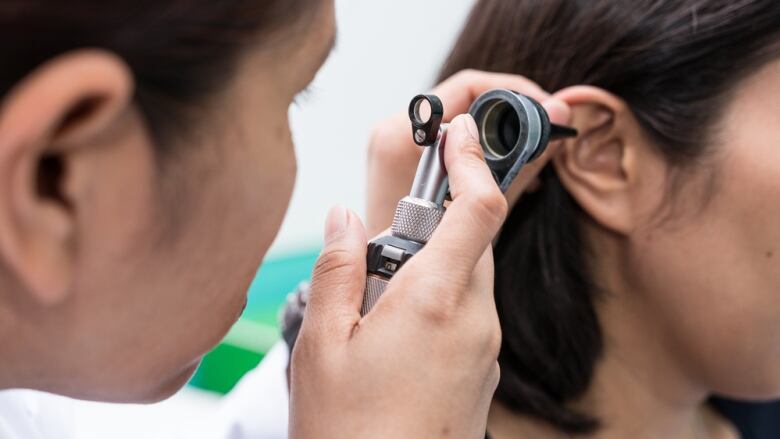Nix the noise: WorkSafeBC worried about hearing loss for service industry workers
Bars, restaurants and nightclubs can be noisy enough to damage hearing

Exposure to continuous loudnoise at work can cause permanent hearing loss and WorkSafeBCis telling service industry employees to beware.
Dan Strand, director of prevention services at WorkSafeBC, says noise levels above 85 decibels during an eight-hour shift can cause hearing damage and the levels in nightclubs and bars are often higher. According to Strand, employers are required to have a noise control program in place ifvolume in the workplace is a health risk.
Strand says WorkSafeBC officers routinely findnoise levels in clubs, pubs and cafesbetween 90 to 95 decibels. He told CBC's On The Island guest host Megan Thomasthere's an easy way to test whetherthe environment is above 85 decibels: If you have to raise your voice into a "sort of yelling mode" to communicate with someone a metre away, it's too loud.
'Once it's gone, it's gone'
WorkSafeBC wants employees and their bosses to be aware of therisk andhas created a new safety bulletinto help them take action.
The bulletin has tips foremployers on how toreduce noise, such as using plastic containers instead ofmetalfor dropping off dirty dishes.It is also recommended that staff rotateduring shifts so that no employeeis continuously positioned where the noise is loudest.
Hospitality workers, especially those who work in a pub or a nightclub, are often exposed to hazardous levels of noise. Check out these resources on how to protect yourself and your workers from noise-induced hearing loss: https://t.co/m07Nnu5Pbo pic.twitter.com/TnPyZxUaPZ
—@WorkSafeBCTo protect themselves, WorkSafeBC suggests employees wear hearing protectionandget a baseline hearing testwithing six months of working in a loud bar or club.
"You do not want to see degradation of hearing. Once it's gone, it's gone and it doesn't come back," said Strand.
Jeff Guignard, executive director of the Alliance of Beverage Licensees, said WorkSafeBC's focus on educating employers about the health impact of noisehas beenpositive because manydon't know it's a hazard.
Guignard said there are hearing protection devices that employees can wear that will cancel out background noise, but still allow them to hear customers who are speaking to them.
Between 2008 and 2017, WorkSafeBC accepted 3,343 disability claims for noise-induced hearing loss in B.C.
On The Island












_(720p).jpg)


 OFFICIAL HD MUSIC VIDEO.jpg)
.jpg)



























































































